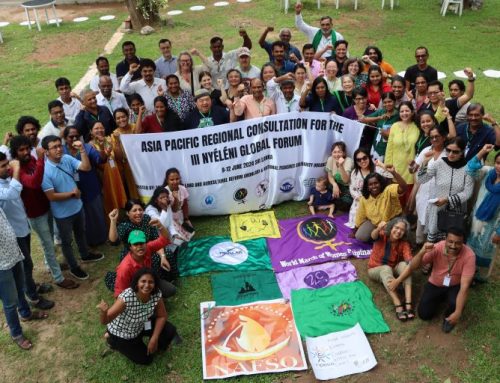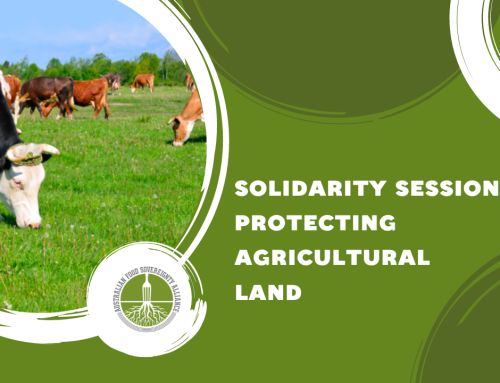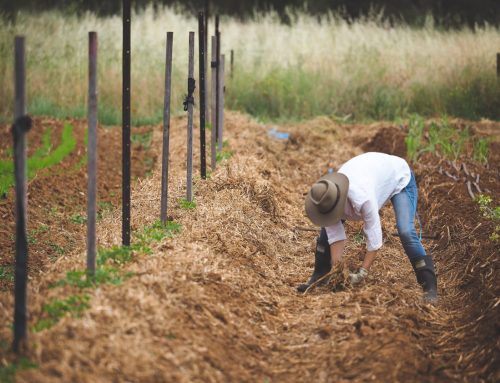In Solidarity Session #15 we’ll explore how to foster a grassroots movement for agroecology with one of the world’s most renowned agroecology scholars, Peter Rosset.
Agroecology brings together the science and practices of ecological farming with the social and political transformations needed to support a just and sustainable food system, and works to build solidarity with peasants, Indigenous peoples, and smallholder producers who are stewarding landscapes as well as critical knowledge and biodiversity. It recognises the need for building farmer-led knowledge and localiseed economies through farmer-to-farmer sharing. We’ll talk about how to foster the growth of the movement and farmer-led agricultural knowledge in Australia.
Agroecology is a science, a set of practices, a politics and a social movement, working towards the goal of an ecologically-sound, sustainable, and equitable food system. Read more about why agroecology matters as a pathway to food sovereignty here
It offers a pathway both to agriculture that is good for land, animals, and people, and to the social and political transformations needed to support that system and ensure the right to nourishing, appropriate and well-grown food for all.
Farmer-led knowledge production and farmer-to-farmer learning are critical to the agroecological approach and to building agricultural systems that are connected and adapted to their context.
We’ll talk to agroecology scholar and activist Peter Rosset about the need for farmer-led knowledge and the transition to agroecology. Peter is professor of agroecology at the ECOSUR Advanced Studies Institute (ww.ecosur.mx)in Chiapas, Mexico. He has worked with agroecology processes in La Via Campesina for many years, and recently co-authored “Agroecology: Science and Politics” with Miguel Altieri. His research focuses on scaling up peasant agroecology in grassroots social movements.
Join us to chat with Peter about his experiences with fostering the agroecological movement internationally, and how to do it in Australia.





